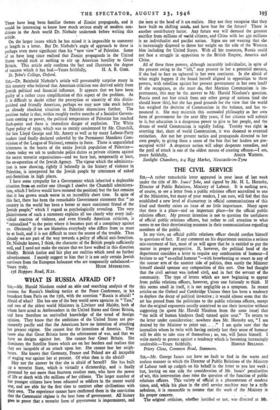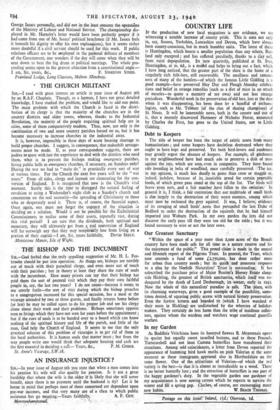Sta,—Mr. George Isaacs can have no fault to find in
the warm and zealous manner in which the Director of Public Relations of the Ministry of Labour took up cudgels on his behalf in the letter to you last week ; but, leaving on one side the consideration of Mr. Isaacs' peculiarities of wit, this intervention does raise the question of the function of public relations officers. This variety of official is a phenomenon of modern times, and, while his place in the civil service machine may be a trifle nebulous, it is reasonable to assume that the work of the Ministry is his proper concern.
The original criticism, whether justified or not, was directed at Mr.
George. Isaacs personally, and did not in the least concern the operatiOns of the Ministry of Labour and National Service. The championship dis- played in Mr. Hornsby's letter would have been perfectly proper if it had come from one of Mr. Isaacs' political henchmen (if Mr. Isaacs feels it beneath his dignity to offer his own explanations), but it seems rather more doubtful if a civil servant should be used for this work. If public relations officers are to be employed in the personal defence of members of the Government, one wonders if the day will come when they will he sent down to beat the big drum at political meetings. The whole pro- ceeding seems open to the gravest objection from a constitutional angle.—



























 Previous page
Previous page